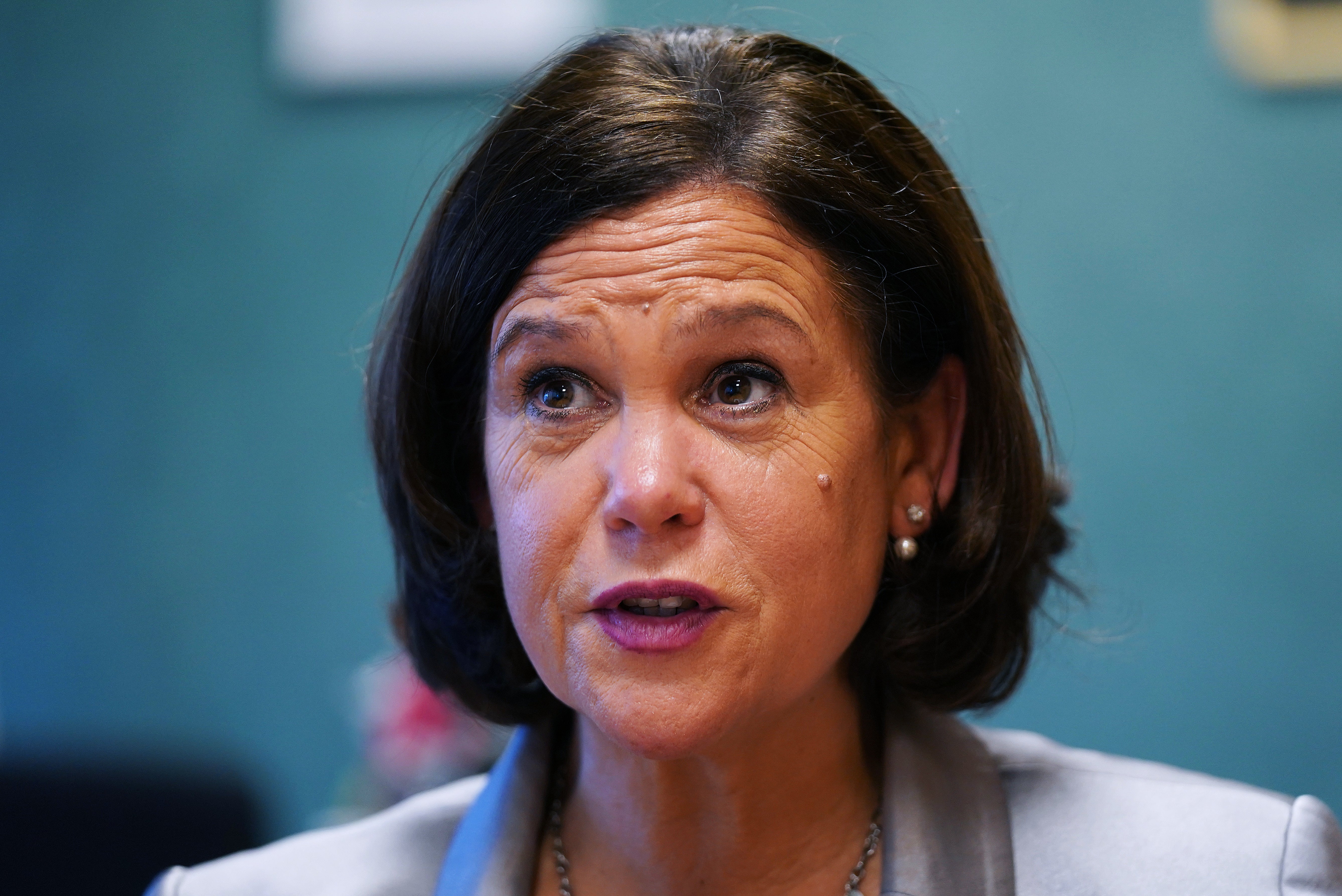Dublin must step up opposition to UK’s ban on Troubles prosecutions – McDonald
The Sinn Fein president has called on the Irish Government to set out how it will respond if London proceeds with the plans.

Your support helps us to tell the story
From reproductive rights to climate change to Big Tech, The Independent is on the ground when the story is developing. Whether it's investigating the financials of Elon Musk's pro-Trump PAC or producing our latest documentary, 'The A Word', which shines a light on the American women fighting for reproductive rights, we know how important it is to parse out the facts from the messaging.
At such a critical moment in US history, we need reporters on the ground. Your donation allows us to keep sending journalists to speak to both sides of the story.
The Independent is trusted by Americans across the entire political spectrum. And unlike many other quality news outlets, we choose not to lock Americans out of our reporting and analysis with paywalls. We believe quality journalism should be available to everyone, paid for by those who can afford it.
Your support makes all the difference.Dublin must step up its opposition to the UK Government’s proposed amnesty for Troubles-era prosecutions in the new year, Mary Lou McDonald has said.
The Sinn Fein president has called on the Irish Government to set out how it will respond if London proceeds with plans to end legal cases relating to the conflict in Northern Ireland
In July, Northern Ireland Secretary Brandon Lewis announced plans for a statute of limitations which would end all prosecutions for Troubles incidents up to April 1998 and would apply to military veterans as well as ex-paramilitaries.
I think we need to hear from Government here, if the British move this legislation, if they are insistent on that, what will the response from Dublin be?
The proposals, which Prime Minister Boris Johnson said would allow Northern Ireland to “draw a line under the Troubles”, would also end all legacy inquests and civil actions.
Ms McDonald said: “There isn’t any shade of political opinion on the island of Ireland that supports this amnesty. We have all asserted that it is wrong.
“I think there is a necessity for them (the Irish Government) to step up actions and to be consistently and publicly vocal come the new year.
“And then I think we need to hear from Government here, if the British move this legislation, if they are insistent on that, what will the response from Dublin be? That’s the big question there.”
The proposals have been condemned by all the main political parties in Northern Ireland as well as the Irish Government and a range of victims’ and survivors’ groups.
Speaking to the PA News Agency, Ms McDonald described the plans as “outrageous” and said they were designed to protect British state actors.
“The proposal for a general amnesty for British state actors – and the amnesty is for their soldiers and for their proxies – that is outrageous,” she said.
“It has no support on the island of Ireland. It has been criticised internationally.
“I think certainly the Government in Dublin needs to keep the pressure on Boris Johnson on that.”
Ms McDonald also criticised London for efforts to rip up the Northern Ireland Protocol, the post-Brexit agreement that has prevented a hard border on the island of Ireland.
She said the UK’s position on the issue has been damaging for them internationally.
This kind of machismo that comes from the Johnson administration is deeply misguided. I don't think it's well received internationally.
“The United States has made clear there won’t be a trade agreement if the protocol is shredded, and if there is damage to the Good Friday Agreement,” she said.
“I think that’s pretty clear. In fairness, the US administration and across the aisle of US politics, there has been a clarity of message that there can’t be damage to the Good Friday Agreement and the protocol has to be delivered.
“I think that would be most unwise on their part. I think the idea that, you know, Britannia waives the rules, this kind of machismo that comes from the Johnson administration is deeply misguided.
“I don’t think it’s well received internationally.
“I think the British Government and system needs to understand, when it comes to Irish interests, we have an agreement.
“We have international law on our side when we argue for the protections that we’re entitled to.
“The sensible, the smart, and the honourable thing is to keep your word.
“To abide by the agreements that you’ve signed off on, and not to endlessly create uncertainty and anxiety, which has consequences for everyone, not least very, very serious economic consequences.”